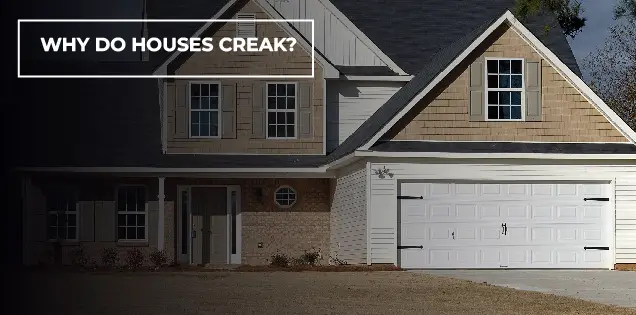People vary from being quiet to being extroverted. That’s also how houses are. Your home may become noisier than usual during odd hours of the day or night. They may create a hissing sound or a strange noise. The creaking noises are very interesting. You will feel similar to being a movie protagonist due to the thrilling voices coming from your house.
However, these noises are terrifying for many individuals, and most want them fixed as soon as possible. To assist you in this endeavor, we will address the subject of “why do houses creak?”
So, let’s go!
Why Do Houses Make Popping and Cracking Noises?
Here are some reasons why houses make popping and cracking noises:
The Roof Needs Fixing

A haunted house doesn’t have to be at play here. But, repairing a leaking roof, for example, may be the problem.
Inspecting the roof’s exterior using a ladder first thing in the morning is the best course of action. Damaged or loose shingles are an obvious indicator that it’s time to repair your roof.
You can choose to repair the roof yourself or hire a professional service. If the damage is minimal and time is important, doing it yourself is better than calling the professionals.
However, for this kind of work, nothing beats consulting an expert. The money will be well spent since you won’t have to face the same difficulty again, or at least not for a very long time.
Overhead Bangs
Those who have just moved into a new house may experience loud crashes from above. However, remember that this will only be the case if the new house is brand new. This reason may not be for you if you are only renting or have acquired an older home.
One exception of brand-new homes is that their roof bangs are often still a vibrant green. So, what does this imply? This color indicates that there is still much moisture in the wood.
We don’t anticipate this to be too much of an issue since the moisture will evaporate over time. However, this will take some time, and you can expect to hear some cracking while the moisture evaporates.
The contracting and releasing bangs are to blame for this. Although the damage to your home will be minimal, the resulting noises will be so loud that you may fear that a tree fell through your roof.
You can do something about it by installing a ventilation system. The wood will naturally cool as a result of increased airflow.
Plumbing Pops

Another important part of your home that needs maintenance is the plumbing.
An expansion pop may occur in copper pipes if hot water passes through them. But, on the other hand, that’s not the sole explanation for the creaking in your home.
If you hear a creaking sound immediately after someone shuts off the faucet, you may have a water hammer issue. When the valve shuts rapidly, the water pressure causes it to do so.
The pipe will clatter when it rubs against the wood framing or other pipes.
So, what to do?
Wrapping your pipes with foam is a great first step. To further prevent the effects of water hammers, you may contact plumbers and have them set up absorbers.
Creaks and Squeaks Underfoot
Wooden flooring may be a great upgrade for any home’s aesthetic. However, these sorts of flooring need regular maintenance every several months.
If you don’t take care of the wood, it will grow brittle and make noise as soon as someone walks on it.
This noise might become an issue if several individuals live in the home at once. This noise may wake you up from a deep sleep.
You Have Flat Roofs
The majority of creaking sounds on flat roofs are due to water. Consider the scenario when it has been raining excessively, and your house makes noise.
You know that severe rains may cause roof noise, but not this loud. However, you should consult a specialist if the noise level becomes intolerable.
You may fix the problem by installing components on the roof that will keep it quiet during a storm.
Heat-Related Cracking On The Roof
Okay, so we have seen why it might be the case if it had been pouring strongly and the roof had made a little noise. However, it might be a little unsettling to discover an issue at home in the middle of the day.
Keep in mind that heat might be the underlying reason for noises. For example, the roof may move if the weather changes.
You should expect the noise to be more noticeable first thing in the morning or whenever you switch on the air conditioner.
Here are some potential solutions:
- White paint
- Install expansion joints
- Incorporate a ventilation system into your home’s design
- See whether any cracks have appeared in the roofing system by having it inspected
Why Do Houses Creak in Cold Weather?
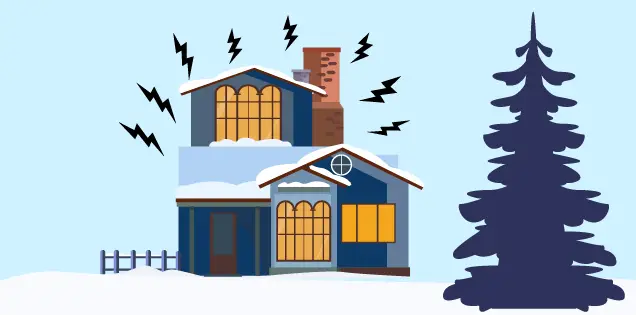
There are two possible causes for the creaking sounds heard in cold weather:
Expansion And Contraction of the Building Materials
It is a physical law that as the matter is heated, it expands, and when it is cooled, it shrinks. Rapid contraction of exposed construction elements in cold weather causes sounds when they scrape against one another. Since wood absorbs and releases moisture into the dry winter air, it highlights the effects of seasonal changes on the house.
In extreme cases, the wood might shrink enough to cause the nails holding it together to come out, releasing a loud pinging sound. The wood rubbing causes the creaking against each other as it expands and collapses.
Water Pipes Expanding and Contracting
Water pipes will become smaller throughout the winter. The sounds you hear in the basement may result from their fast expansion when hot water runs through them. Pipes containing water will freeze if the temperature drops very low. Ice forms without the usual contraction seen in the freezing of water.
Due to the pressure created by the water’s expansion within the narrowing pipes, a pipe crack is possible. Then, a loud, exploding noise will be produced when the pipes finally give up.
How Do I Stop My House From Creaking?
Here are some things you can do to stop your house from creaking.
De-Squeak Your Doors
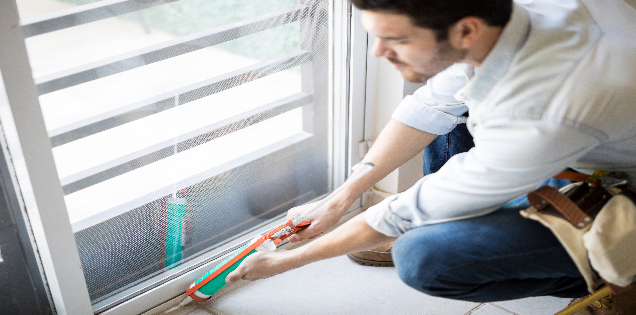
Squeaky doors are a hassle, but they’re easy to fix. However, this issue requires the least effort to resolve compared to the others. Most people automatically go for WD-40 to fix this, even though it is not the best solution.
When it comes to lubricants, WD-40 falls short. However, it will end up attracting dirt and turning the hinge pins on your door black, but it will eliminate the noise issue. It is not what you want, so look into some other methods.
You can use vegetable oil instead of other oils if you don’t want to go out and purchase anything. In fact, we’ve used this on our door hinges. Some people are concerned that it would bring in unwanted pests like ants, but as long as you don’t saturate the door with canola oil, you shouldn’t have any issues.
We had some fairly serious bug problems last year, but they’ve never bothered to get near a door hinge. You can also use a candle, although its rigidity might be a problem.
You have many choices if you’d rather spend some money on your repair and steer clear of these possible complications. For example, you may use lubricating oil purchased at your local hardware store, surfboard wax, or petroleum jelly (like Vaseline) to achieve the same effect. It’s oil, and oils lubricate.
After using this, you won’t have to worry about your door squeaking anymore. Take out the door’s hinge pin, remove the door, and spray some oil. Oil the pin as well, just in case. In the same way, you may use other methods like frying oil or a candle. When done, put everything back together, and the door should be quiet.
Stop Creaking Floors
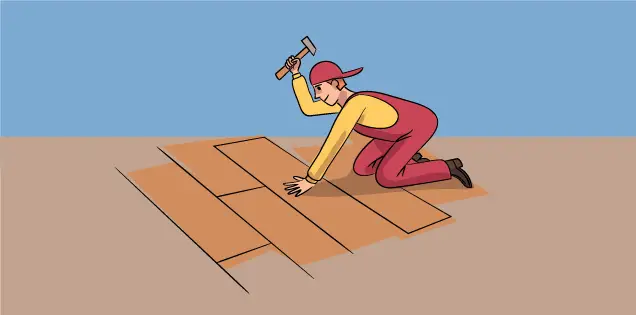
From prior experience, we know that fixing a creaky floor requires a little more effort than usual. Wood shrinkage around the nails is the primary cause of creaking flooring. Driving screws up from the bottom through the subfloor and into the hardwood frequently reduces squeaks, provided you can identify the problem locations. If you’re working with hardwood, use screws that are just long enough to hold the material but not long enough to poke through.
You can also install counter snaps, a low-effort solution, very easily. In other words, if you can pinpoint the source of the issue, you can eliminate the creaking in the floor in short order.
Fix Your Noisy Pipes
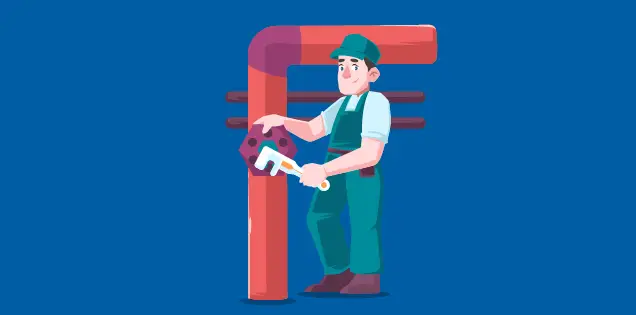
There are many potential explanations for pipes that make much noise. It would be best if you didn’t try to repair them yourself. So, let’s discuss a few options.
Creaking may occur at a water pressure higher than 50 psi. To confirm whether or if high pressure is the cause of the noise, you may connect a pressure gauge and, if so, install pressure regularly. You shouldn’t do this even if you own your own house. If you’re a tenant, you should talk to your landlord about the issue rather than trying to fix it on your own.
You can attribute the squeaking pipes to increased water pressure, but there are a few other potential explanations. For example, there may be annoying noises if pipes are loose, if they contact their frame without padding, or if the air in the chamber cushions them is contaminated by moisture.
Repeatedly, you shouldn’t try to resolve this alone if you lack the necessary expertise. Instead, contact a specialist to take care of it or talk to your landlord.
Final Words
What causes creaking in houses? The spooky noises and popping noises can signify anything. It might be the flooring. It could be the plumbing; it could be anything. However, in the final analysis, the creaking sound you hear most likely comes from your roof.
It would be best if you weren’t too concerned about the noise. Roof damage may bring a whole host of other complications into play. It is never a bad idea to contact some specialists and have your roof examined so that you can take care of it sooner rather than later.
Read Also: Why Do Houses Need Rain Gutters?
